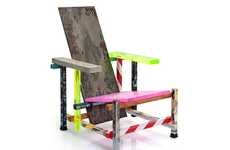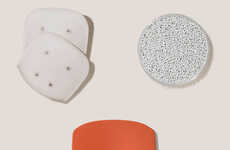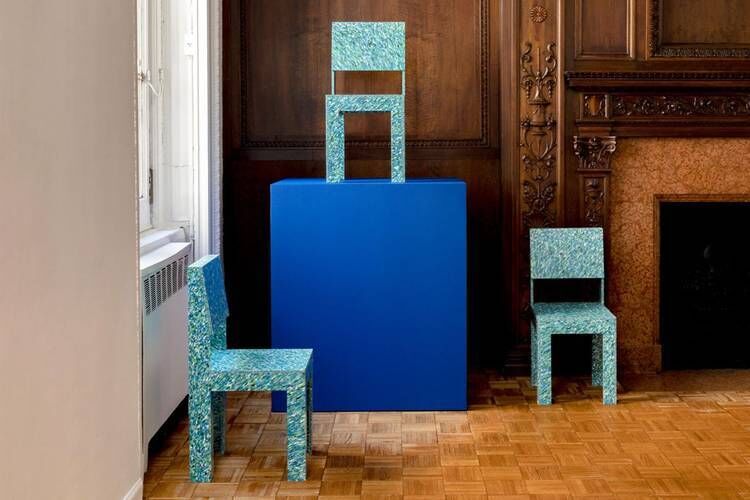
Jane Atfield Breathes Life to the RCP2 Chair For Its 30th Year
Amy Duong — April 7, 2022 — Art & Design
References: hypebeast
Making its inaugural launch back in 1992, the RCP2 chair by Jane Atfield grabbed attention with its spectacular recycled plastic construction. This year marks the 30th anniversary of the impressive design, continuing to channel sustainable initiatives, there is still a prominent focus on designing with the environment at the forefront.
The chair is a symbol of climate change and consumer culture all at once and showcases Atfield's efforts of creating a difference in the industry by promoting the use of recycled plastic materials. She continues to drive the message by creating her own company to process recycled materials. The chair is made using a recycled high-density polyethylene board emanated from plastic bottles. She started by collecting bottles and the n pressing the plastic before heating it and forming boards.
Image Credit: Sean Davidson
The chair is a symbol of climate change and consumer culture all at once and showcases Atfield's efforts of creating a difference in the industry by promoting the use of recycled plastic materials. She continues to drive the message by creating her own company to process recycled materials. The chair is made using a recycled high-density polyethylene board emanated from plastic bottles. She started by collecting bottles and the n pressing the plastic before heating it and forming boards.
Image Credit: Sean Davidson
Trend Themes
1. Sustainable Furniture Design - The RCP2 chair demonstrates the potential for recycled plastic in furniture design, highlighting the opportunity for creating sustainable furniture pieces.
2. Circular Economy - Jane Atfield's creation of her own company to process recycled materials for the RCP2 chair offers the potential for a circular economy within the furniture industry.
3. Recycled Material Innovation - The use of recycled plastic materials in the RCP2 chair presents innovative opportunities for the use of alternative materials in furniture design.
Industry Implications
1. Furniture - The RCP2 chair introduces the potential for the sustainable furniture design in the industry, specifically using recycled materials.
2. Manufacturing - The creation of Atfield's own company to process recycled materials for the RCP2 chair demonstrates potential for innovation within the manufacturing industry.
3. Sustainability - The RCP2 chair's use of recycled materials and sustainable design practices highlights the growth potential for this industry.
0.9
Score
Popularity
Activity
Freshness
























